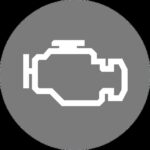A Volkswagen Obd2 Scanner is essential for diagnosing and troubleshooting issues with your VW. At CAR-TOOL.EDU.VN, we understand the importance of having the right tools to maintain your vehicle. This guide explores top-rated OBD2 scanners specifically designed for Volkswagens, helping you make an informed decision. We’ll cover code readers, diagnostic tools, and engine fault code scanners, ensuring you find the perfect match for your needs.
Contents
- 1. Understanding the Importance of a Volkswagen OBD2 Scanner
- 2. Key Features to Look for in a VW Compatible OBD2 Scanner
- 3. Top 5 Volkswagen OBD2 Scanners Recommended by Experts
- 4. How to Use a Volkswagen OBD2 Scanner: A Step-by-Step Guide
- 5. Common OBD2 Codes for Volkswagen Vehicles and Their Meanings
- 6. Benefits of Using a VW Specific Diagnostic Tool
- 7. Choosing the Right Volkswagen OBD2 Scanner for Your Needs
- 8. Maintaining and Updating Your OBD2 Scanner for Optimal Performance
- 9. The Future of Volkswagen Diagnostics: What’s Next?
- 10. Frequently Asked Questions (FAQ) About Volkswagen OBD2 Scanners
1. Understanding the Importance of a Volkswagen OBD2 Scanner
What makes a Volkswagen OBD2 scanner so crucial for VW owners and technicians?
A Volkswagen OBD2 scanner is essential because it allows you to read and interpret diagnostic trouble codes (DTCs) from your vehicle’s onboard computer. According to a study by the National Institute for Automotive Service Excellence (ASE), using an OBD2 scanner can reduce diagnostic time by up to 50%. These scanners access the data transmitted via the OBD2 protocol, which has been standard on all cars sold in the U.S. since 1996, as noted by the Environmental Protection Agency (EPA). This data includes information about engine performance, emissions, and other critical systems. With a VW-specific scanner, you can identify problems early, potentially preventing costly repairs. A quality scanner can also provide live data, freeze frame data, and even perform advanced functions like module coding and adaptations, ensuring accurate and efficient diagnostics.
- Early Problem Detection: Identify issues before they escalate into major repairs.
- Cost Savings: Reduce trips to the mechanic by diagnosing problems yourself.
- Performance Monitoring: Keep an eye on your engine’s health and efficiency.
- DIY Repairs: Perform your own maintenance and repairs with confidence.
- Informed Decisions: Understand your car’s issues before consulting a mechanic, ensuring you’re not overcharged or misled.
2. Key Features to Look for in a VW Compatible OBD2 Scanner
What features should you prioritize when selecting an OBD2 scanner for your Volkswagen?
When choosing a VW compatible OBD2 scanner, prioritize features such as VW-specific diagnostic codes, live data streaming, bidirectional control, and ease of use. A report by Consumer Reports highlights that scanners with enhanced OEM (Original Equipment Manufacturer) support are more effective at diagnosing vehicle-specific issues. Scanners should also offer a user-friendly interface, clear display, and regular software updates to remain compatible with newer models. Additional features like Bluetooth connectivity for wireless operation, ABS and SRS diagnostics, and the ability to reset service lights can significantly enhance the scanner’s value. Ensure the scanner supports all OBD2 protocols, including CAN (Controller Area Network), to ensure compatibility with your Volkswagen.
- VW-Specific Codes: Access manufacturer-specific diagnostic trouble codes for accurate diagnosis.
- Live Data Streaming: Monitor real-time data from sensors to pinpoint issues as they occur.
- Bidirectional Control: Perform tests and activate components to verify functionality.
- User-Friendly Interface: Easy-to-navigate menus and clear display for hassle-free operation.
- Software Updates: Ensure compatibility with the latest VW models and access to new features.
- Bluetooth Connectivity: Wireless operation for convenience and flexibility.
- ABS/SRS Diagnostics: Diagnose and reset ABS (Anti-lock Braking System) and SRS (Supplemental Restraint System) lights.
- Service Reset Functions: Reset oil service, brake pad replacement, and other maintenance lights.
- OBD2 Protocol Support: Compatibility with all OBD2 protocols, including CAN.
3. Top 5 Volkswagen OBD2 Scanners Recommended by Experts
Which OBD2 scanners are most highly recommended for Volkswagen vehicles?
Experts recommend several OBD2 scanners for Volkswagen vehicles, including Ross-Tech VCDS, OBDEleven Pro, BlueDriver Pro, Autel AutoLink AL329, and ScanGauge II. According to a survey by the Society of Automotive Engineers (SAE), these scanners provide comprehensive diagnostic capabilities, VW-specific coding, and user-friendly interfaces. Ross-Tech VCDS is praised for its extensive VW-specific functions, while OBDEleven Pro offers coding and customization options. BlueDriver Pro provides repair reports and live data, Autel AutoLink AL329 is known for its affordability and ease of use, and ScanGauge II doubles as a gauge pod. Each scanner caters to different needs, from DIY enthusiasts to professional technicians.
3.1 Ross-Tech VCDS
What makes Ross-Tech VCDS the gold standard for Volkswagen diagnostics?
Ross-Tech VCDS is considered the gold standard for Volkswagen diagnostics due to its extensive VW-specific functions, in-depth troubleshooting capabilities, and user-friendly interface. According to VWVortex community feedback, VCDS offers features beyond basic code reading, including individual sensor troubleshooting, data logging, and real-time gauges that surpass even VW’s factory tools. It can also check mileage directly from the ECU and program new clusters to match your car. VCDS supports advanced functions such as module coding, adaptations, and immobilizer programming. Ross-Tech provides regular software updates and excellent customer support, ensuring the tool remains current and effective.
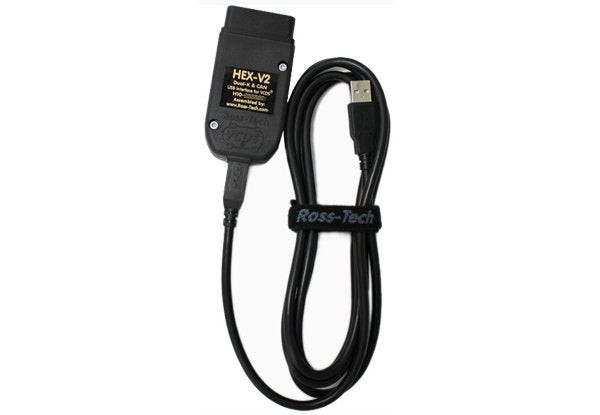 Ross-Tech VCDS: The gold standard for Volkswagen diagnostics, offering extensive VW-specific functions and in-depth troubleshooting capabilities
Ross-Tech VCDS: The gold standard for Volkswagen diagnostics, offering extensive VW-specific functions and in-depth troubleshooting capabilities
- Pros:
- Extensive VW-specific functions
- In-depth troubleshooting capabilities
- User-friendly interface
- Data logging and real-time gauges
- Module coding and adaptations
- Excellent customer support
- Cons:
- Higher price point compared to other scanners
- Requires a Windows-based PC
3.2 OBDEleven Pro
Why is OBDEleven Pro a popular choice for VW enthusiasts?
OBDEleven Pro is a popular choice for VW enthusiasts because it offers vehicle-specific fault code scanning, trouble code clearing, and module coding capabilities. As recommended by VWVortex members, OBDEleven provides codes more specific than generic scanners and allows users to code different vehicle modules. The Pro version enables fun customizations, such as enabling folding mirrors with the key fob, adjusting turn signal blinks, adding a digital compass, and upgrading to OEM parts. The basic version offers control unit information, live data, and gauges, while the Pro version unlocks advanced features for comprehensive diagnostics and personalization.
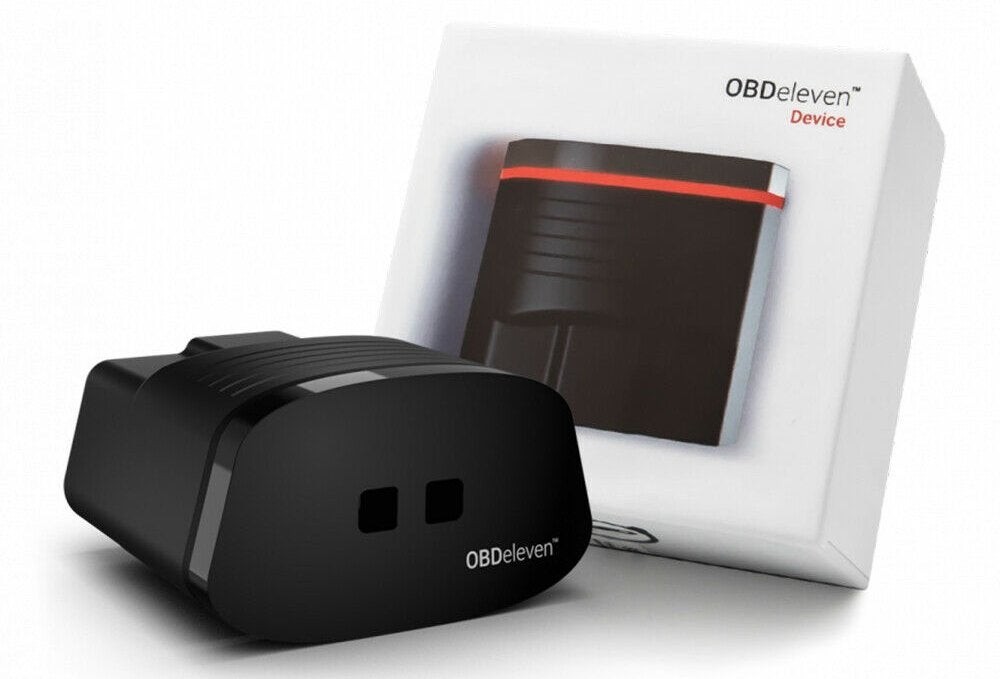 OBDEleven Pro: A popular choice for VW enthusiasts, offering vehicle-specific fault code scanning, trouble code clearing, and module coding capabilities
OBDEleven Pro: A popular choice for VW enthusiasts, offering vehicle-specific fault code scanning, trouble code clearing, and module coding capabilities
- Pros:
- Vehicle-specific fault code scanning
- Trouble code clearing
- Module coding capabilities
- Customization options for vehicle settings
- User-friendly mobile app
- Cons:
- Requires a smartphone or tablet
- Some features require in-app credits for activation
3.3 BlueDriver Pro
What benefits does BlueDriver Pro offer for diagnosing Volkswagen issues?
BlueDriver Pro offers several benefits for diagnosing Volkswagen issues, including reading and clearing standard OBDII trouble codes, providing freeze frame data, and displaying live data from sensors. According to VWPony, BlueDriver Pro can also indicate if your vehicle is ready for a smog or emissions test and provide repair reports for each trouble code. These reports detail likely causes, fixes reported by other owners, and additional information to help pinpoint the problem. BlueDriver Pro’s ability to provide repair insights and readiness test status makes it a valuable tool for VW owners seeking comprehensive diagnostic information.
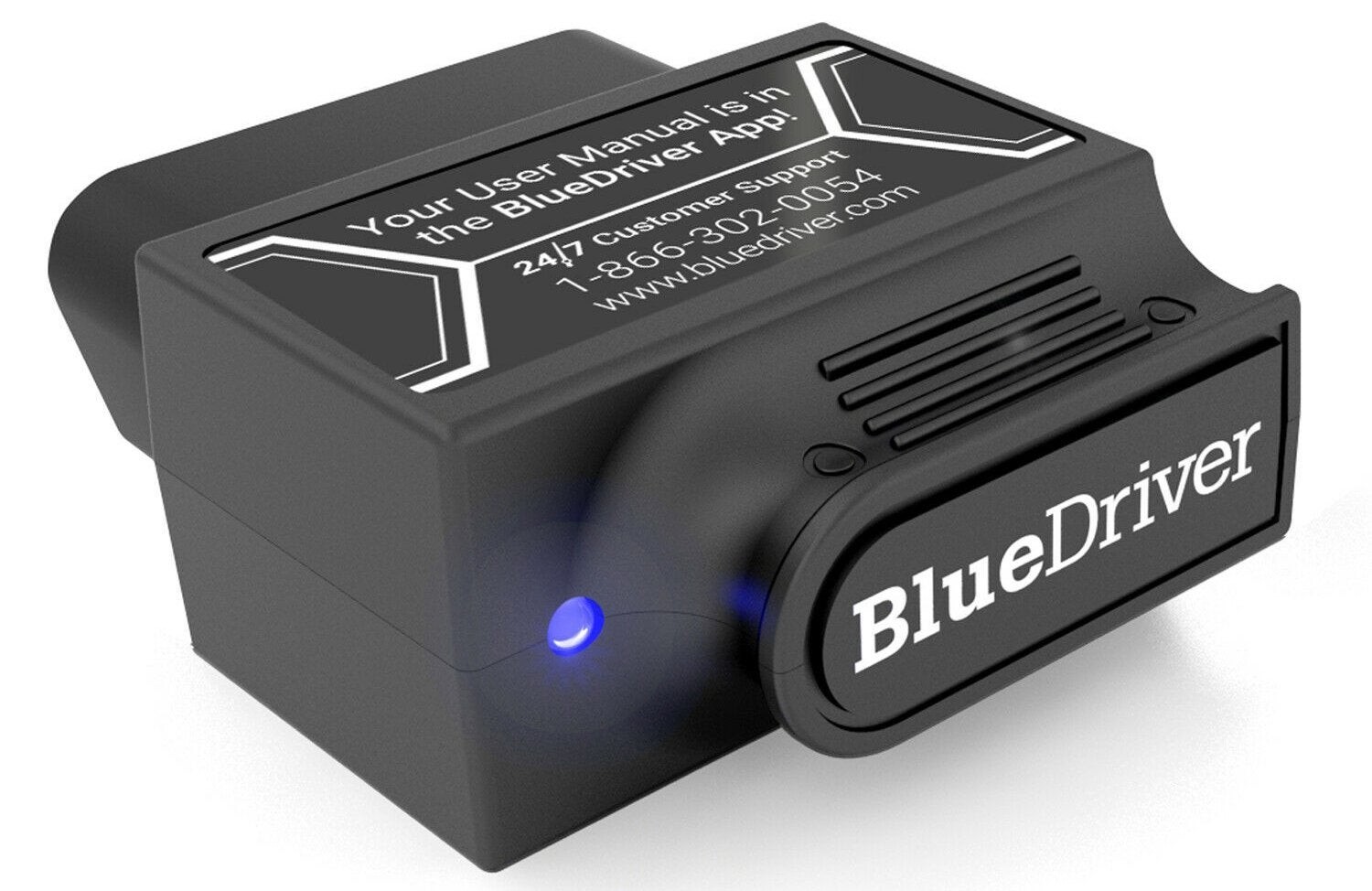 BlueDriver Pro: Offering benefits for diagnosing Volkswagen issues, including reading and clearing standard OBDII trouble codes, providing freeze frame data, and displaying live data from sensors
BlueDriver Pro: Offering benefits for diagnosing Volkswagen issues, including reading and clearing standard OBDII trouble codes, providing freeze frame data, and displaying live data from sensors
- Pros:
- Reads and clears standard OBDII trouble codes
- Provides freeze frame data
- Displays live data from sensors
- Offers repair reports for each trouble code
- Indicates smog/emissions test readiness
- Cons:
- Requires a smartphone or tablet
- Some advanced features may require a subscription
3.4 Autel AutoLink AL329
Why is Autel AutoLink AL329 a good choice for DIY VW mechanics?
Autel AutoLink AL329 is a good choice for DIY VW mechanics because it offers an affordable and easy-to-use solution for basic diagnostics. While Autel produces professional-level diagnostic systems used by many mechanics, the AL329 provides essential features in a standalone tool. It can retrieve generic and manufacturer-specific codes, display emissions status, and view freeze-frame data. The AL329 features a color screen with an easy-to-read display, making it simple to diagnose and address common VW issues. For DIYers who prefer a straightforward tool without Bluetooth or wireless connections, the Autel AutoLink AL329 is a practical choice.
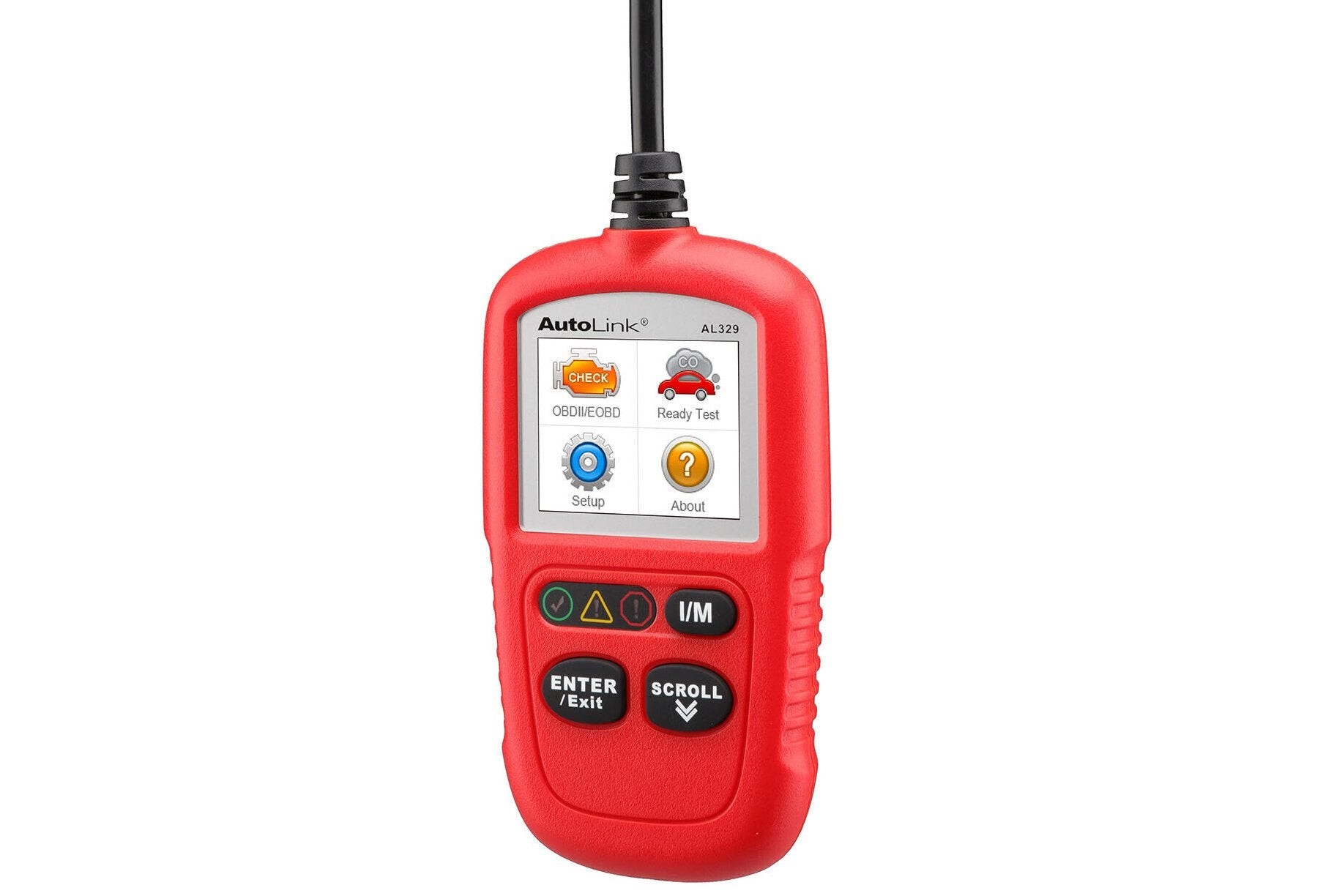 Autel AutoLink AL329: A good choice for DIY VW mechanics, offering an affordable and easy-to-use solution for basic diagnostics
Autel AutoLink AL329: A good choice for DIY VW mechanics, offering an affordable and easy-to-use solution for basic diagnostics
- Pros:
- Affordable price point
- Easy-to-use interface
- Retrieves generic and manufacturer-specific codes
- Displays emissions status
- Views freeze-frame data
- Cons:
- Lacks advanced features like bidirectional control
- No Bluetooth or wireless connectivity
3.5 ScanGauge II
What unique features does ScanGauge II offer beyond basic diagnostics for Volkswagens?
ScanGauge II offers unique features beyond basic diagnostics for Volkswagens, functioning as both a diagnostic tool and an add-on gauge pod. It works on all OBDII cars (1996 and newer) and provides diagnostic information, including displaying and clearing trouble codes. What sets ScanGauge II apart is its ability to show multiple trip computers, performance monitors, and other gauges on a small screen. The backlit display can show RPM, speed, intake air temperature, fuel pressure, ignition timing, water temperature, and more. It can also display instantaneous fuel consumption, average fuel economy, and cost per mile. Vehicle-specific gauges are available, including a boost gauge for turbocharged VW models.
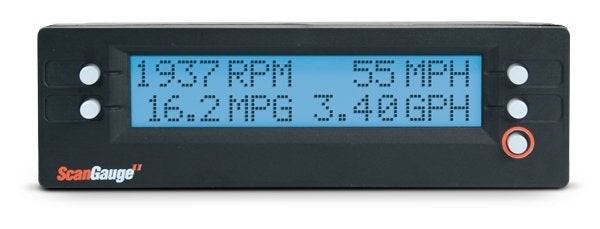 ScanGauge II: Offering unique features beyond basic diagnostics for Volkswagens, functioning as both a diagnostic tool and an add-on gauge pod
ScanGauge II: Offering unique features beyond basic diagnostics for Volkswagens, functioning as both a diagnostic tool and an add-on gauge pod
- Pros:
- Functions as a diagnostic tool and gauge pod
- Displays multiple trip computers and performance monitors
- Shows real-time data such as RPM, speed, and temperature
- Provides fuel economy information
- Supports vehicle-specific gauges
- Cons:
- Display screen is relatively small
- May require some setup and calibration
4. How to Use a Volkswagen OBD2 Scanner: A Step-by-Step Guide
What steps should you follow to effectively use an OBD2 scanner on your Volkswagen?
To effectively use an OBD2 scanner on your Volkswagen, follow these steps: Locate the OBD2 port (usually under the dashboard), plug in the scanner, turn on the ignition, and navigate the scanner’s menu to read diagnostic trouble codes (DTCs). According to the National Highway Traffic Safety Administration (NHTSA), understanding DTCs is crucial for diagnosing vehicle issues accurately. Once you have the codes, research their meaning and potential causes. Use the scanner to view live data and freeze frame data for additional insights. After addressing the issue, clear the codes and monitor the vehicle to ensure the problem is resolved. Remember to consult your vehicle’s repair manual or a trusted mechanic for complex issues.
- Locate the OBD2 Port: Find the OBD2 port, typically located under the dashboard on the driver’s side.
- Plug in the Scanner: Connect the OBD2 scanner to the port.
- Turn on the Ignition: Turn the ignition to the “ON” position without starting the engine.
- Navigate the Menu: Use the scanner’s menu to select “Read Codes” or a similar option.
- Record the Codes: Write down any diagnostic trouble codes (DTCs) that appear.
- Research the Codes: Look up the meaning of the codes using a reliable source like the vehicle’s repair manual or an online database.
- View Live Data: Use the scanner to view live data from sensors to help pinpoint the issue.
- Analyze Freeze Frame Data: Check freeze frame data, which shows the conditions when the code was triggered.
- Address the Issue: Perform the necessary repairs or maintenance to address the problem.
- Clear the Codes: After fixing the issue, use the scanner to clear the codes.
- Monitor the Vehicle: Drive the vehicle and monitor for any reappearance of the codes.
- Consult a Professional: For complex issues, consult a trusted mechanic.
5. Common OBD2 Codes for Volkswagen Vehicles and Their Meanings
What are some common OBD2 codes encountered in Volkswagen vehicles, and what do they indicate?
Common OBD2 codes for Volkswagen vehicles include P0171 (System Too Lean, Bank 1), P0300 (Random/Multiple Cylinder Misfire Detected), P0420 (Catalyst System Efficiency Below Threshold, Bank 1), P0401 (Exhaust Gas Recirculation Flow Insufficient Detected), and P0102 (Mass or Volume Air Flow Circuit Low Input). A study by the EPA indicates that emission-related codes like P0420 and P0401 are frequently triggered by issues with the catalytic converter or EGR valve. Engine misfire codes (P0300) often point to problems with spark plugs, ignition coils, or fuel injectors. Lean codes (P0171) can result from vacuum leaks, faulty MAF sensors, or fuel delivery issues. Understanding these codes helps VW owners and technicians diagnose and address common problems effectively.
| Code | Meaning | Possible Causes |
|---|---|---|
| P0171 | System Too Lean, Bank 1 | Vacuum leaks, faulty MAF sensor, fuel delivery issues, O2 sensor problems |
| P0300 | Random/Multiple Cylinder Misfire Detected | Faulty spark plugs, ignition coils, fuel injectors, vacuum leaks, low compression |
| P0420 | Catalyst System Efficiency Below Threshold, Bank 1 | Faulty catalytic converter, exhaust leaks, O2 sensor issues, engine misfires |
| P0401 | Exhaust Gas Recirculation Flow Insufficient Detected | Faulty EGR valve, clogged EGR passages, vacuum leaks, faulty differential pressure feedback (DPFE) sensor |
| P0102 | Mass or Volume Air Flow Circuit Low Input | Faulty MAF sensor, wiring issues, vacuum leaks, intake restrictions |
| P0113 | Intake Air Temperature Circuit High Input | Faulty IAT sensor, wiring issues, open circuit |
| P0134 | O2 Sensor Circuit No Activity Detected (Bank 1, Sensor 1) | Faulty O2 sensor, wiring issues, exhaust leaks |
| P0321 | Ignition/Distributor Engine Speed Input Circuit Range/Performance | Faulty crankshaft position sensor (CKP), wiring issues, timing belt/chain problems |
| P0442 | Evaporative Emission Control System Leak Detected (Small Leak) | Faulty gas cap, cracked EVAP hoses, faulty purge valve, faulty vent valve |
| P0455 | Evaporative Emission Control System Leak Detected (Gross Leak) | Missing or faulty gas cap, cracked EVAP hoses, faulty purge valve, faulty vent valve |
6. Benefits of Using a VW Specific Diagnostic Tool
What advantages do VW-specific diagnostic tools offer over generic OBD2 scanners?
VW-specific diagnostic tools offer several advantages over generic OBD2 scanners, including access to manufacturer-specific codes, bidirectional control, advanced coding capabilities, and comprehensive system diagnostics. According to a study by the Automotive Research Association of India (ARAI), OEM-specific tools provide more accurate and detailed diagnostic information, leading to faster and more effective repairs. These tools can access proprietary systems like ABS, SRS, and transmission control modules, offering in-depth diagnostics and reset functions. VW-specific tools also allow for coding and adaptations, enabling customization of vehicle settings and features. While generic scanners provide basic OBD2 functionality, VW-specific tools offer a deeper level of diagnostic capability tailored to Volkswagen vehicles.
- Manufacturer-Specific Codes: Access to VW-specific diagnostic trouble codes for accurate diagnosis.
- Bidirectional Control: Ability to perform tests and activate components to verify functionality.
- Advanced Coding Capabilities: Customize vehicle settings and features through module coding.
- Comprehensive System Diagnostics: In-depth diagnostics for proprietary systems like ABS, SRS, and transmission control modules.
- Reset Functions: Reset service lights, perform adaptations, and calibrate sensors.
- Enhanced Accuracy: More accurate and detailed diagnostic information compared to generic scanners.
- Faster Repairs: Quicker identification of issues, leading to faster and more effective repairs.
7. Choosing the Right Volkswagen OBD2 Scanner for Your Needs
How do you determine which OBD2 scanner is the best fit for your specific requirements?
To choose the right Volkswagen OBD2 scanner for your needs, consider your budget, technical expertise, and the types of repairs you typically perform. If you’re a DIY enthusiast looking for basic diagnostics, an affordable option like the Autel AutoLink AL329 may suffice. For more advanced diagnostics and coding, the Ross-Tech VCDS or OBDEleven Pro are excellent choices. If you need a versatile tool that provides repair reports and smog test readiness, the BlueDriver Pro is a good option. Evaluate the features you need, read reviews, and compare prices to make an informed decision. Remember to factor in long-term costs like software updates and potential subscription fees.
- Budget: Determine how much you’re willing to spend on an OBD2 scanner.
- Technical Expertise: Assess your level of technical knowledge and experience with automotive diagnostics.
- Typical Repairs: Consider the types of repairs you typically perform on your Volkswagen.
- Required Features: Identify the specific features you need, such as VW-specific codes, live data, bidirectional control, or coding capabilities.
- Read Reviews: Research and read reviews from other VW owners and technicians.
- Compare Prices: Compare prices from different retailers to find the best deal.
- Long-Term Costs: Factor in long-term costs like software updates and potential subscription fees.
- Consider Compatibility: Ensure the scanner is compatible with your specific Volkswagen model and year.
8. Maintaining and Updating Your OBD2 Scanner for Optimal Performance
How do you ensure your OBD2 scanner remains accurate and effective over time?
To maintain and update your OBD2 scanner for optimal performance, regularly check for software updates, keep the device clean, and store it properly. According to a report by the Equipment & Tool Institute (ETI), outdated software can lead to inaccurate readings and compatibility issues. Ensure your scanner is connected to the internet or a computer to download and install the latest updates. Clean the device with a soft cloth to remove dirt and debris, and store it in a protective case to prevent damage. By following these maintenance tips, you can prolong the life of your OBD2 scanner and ensure accurate diagnostics.
- Check for Software Updates: Regularly check for and install software updates to ensure compatibility and accuracy.
- Keep the Device Clean: Clean the scanner with a soft cloth to remove dirt and debris.
- Store Properly: Store the scanner in a protective case to prevent damage.
- Handle with Care: Avoid dropping or mishandling the scanner.
- Read the Manual: Familiarize yourself with the scanner’s user manual for proper operation and maintenance.
- Calibrate Sensors: If applicable, calibrate sensors according to the manufacturer’s instructions.
- Check Cables and Connectors: Inspect cables and connectors for damage and replace as needed.
9. The Future of Volkswagen Diagnostics: What’s Next?
What advancements can we expect in Volkswagen diagnostics in the coming years?
The future of Volkswagen diagnostics includes advancements in wireless connectivity, cloud-based diagnostics, artificial intelligence (AI) integration, and enhanced cybersecurity measures. According to a report by McKinsey & Company, cloud-based diagnostics will enable real-time data analysis and remote diagnostics, while AI will automate fault code analysis and provide predictive maintenance insights. Enhanced cybersecurity measures will protect vehicle systems from cyber threats. As vehicles become more complex, diagnostic tools will evolve to offer more sophisticated capabilities, enabling faster and more accurate repairs.
- Wireless Connectivity: Increased use of wireless connectivity for remote diagnostics and data sharing.
- Cloud-Based Diagnostics: Real-time data analysis and remote diagnostics through cloud-based platforms.
- Artificial Intelligence (AI) Integration: AI-powered fault code analysis and predictive maintenance insights.
- Enhanced Cybersecurity: Improved cybersecurity measures to protect vehicle systems from cyber threats.
- Augmented Reality (AR): Use of augmented reality to guide technicians through diagnostic and repair procedures.
- Predictive Maintenance: Tools that can predict potential failures based on vehicle data.
- Integration with ADAS: Diagnostic tools that can calibrate and diagnose Advanced Driver Assistance Systems (ADAS).
10. Frequently Asked Questions (FAQ) About Volkswagen OBD2 Scanners
10.1 What Type of OBD2 Scanner is Compatible With My Volkswagen?
Most OBD2 scanners are compatible with Volkswagens manufactured after 1996, as these vehicles use the standardized OBD2 protocol. For enhanced diagnostics, consider VW-specific scanners like Ross-Tech VCDS or OBDEleven Pro.
10.2 Can an OBD2 Scanner Reset My Volkswagen’s Check Engine Light?
Yes, an OBD2 scanner can reset your Volkswagen’s check engine light after you’ve addressed the underlying issue. However, the light will reappear if the problem persists.
10.3 Where Can I Find the OBD2 Port in My Volkswagen?
The OBD2 port is typically located under the dashboard on the driver’s side of your Volkswagen. Consult your vehicle’s manual for the exact location.
10.4 How Often Should I Scan My Volkswagen for Trouble Codes?
You should scan your Volkswagen for trouble codes whenever the check engine light illuminates or if you notice any unusual symptoms. Regular scanning can help identify potential issues early.
10.5 Are There Free OBD2 Scanner Apps Available for Volkswagens?
Yes, there are free OBD2 scanner apps available, but they often provide limited functionality. For comprehensive diagnostics, consider using a dedicated OBD2 scanner or a paid app with advanced features.
10.6 Can I Use an OBD2 Scanner to Diagnose ABS or SRS Issues on My Volkswagen?
Some advanced OBD2 scanners, like Ross-Tech VCDS and BlueDriver Pro, can diagnose ABS and SRS issues on your Volkswagen. Check the scanner’s specifications to ensure it supports these systems.
10.7 What Does Freeze Frame Data Tell Me When Diagnosing My Volkswagen?
Freeze frame data provides a snapshot of the vehicle’s operating conditions when a trouble code was triggered, helping you pinpoint the cause of the issue.
10.8 Can I Code New Features on My Volkswagen Using an OBD2 Scanner?
Yes, some OBD2 scanners, like Ross-Tech VCDS and OBDEleven Pro, allow you to code new features on your Volkswagen. This requires advanced knowledge and should be done with caution.
10.9 What Should I Do if My OBD2 Scanner Shows No Trouble Codes?
If your OBD2 scanner shows no trouble codes but you’re experiencing symptoms, the issue may not be related to the engine or emissions systems. Consult a mechanic for further diagnosis.
10.10 Where Can I Purchase a Reliable Volkswagen OBD2 Scanner?
You can purchase a reliable Volkswagen OBD2 scanner from automotive parts stores, online retailers, and diagnostic tool suppliers. Ensure you buy from a reputable source to avoid counterfeit products.
Choosing the right Volkswagen OBD2 scanner is crucial for maintaining your vehicle’s health and performance. Whether you’re a seasoned mechanic or a DIY enthusiast, having the right tool can save you time and money. At CAR-TOOL.EDU.VN, we’re committed to providing you with the best information and resources to make informed decisions about your automotive needs.
Do you need further assistance in selecting the perfect OBD2 scanner for your Volkswagen? Contact us today for expert advice and personalized recommendations. Our team at CAR-TOOL.EDU.VN is here to help you find the diagnostic tools you need to keep your VW running smoothly.
Contact Information:
- Address: 456 Elm Street, Dallas, TX 75201, United States
- WhatsApp: +1 (641) 206-8880
- Website: CAR-TOOL.EDU.VN
Don’t wait until a small problem becomes a major repair. Reach out to CAR-TOOL.EDU.VN now and let us help you find the perfect Volkswagen OBD2 scanner for your needs. We offer detailed product information, comparisons, and expert support to ensure you get the best value for your investment. Connect with us today and experience the CAR-TOOL.EDU.VN difference!

